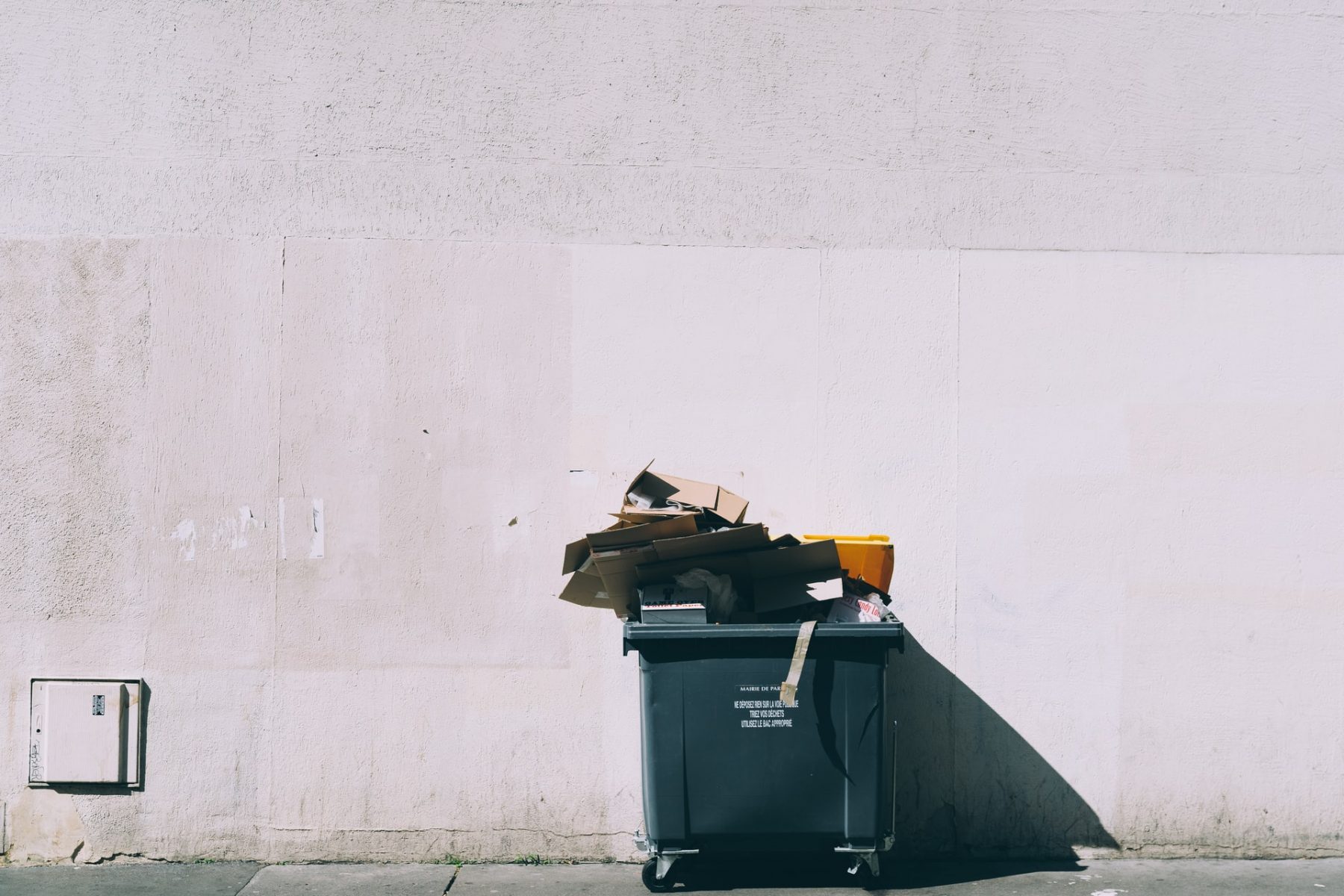The tears spilled witnessing land devastation will not deter the wildfires ravaging the West in America. Our world is quite literally on fire, and we are at a loss for what to do. Many climate change advocates promote a solution that’s both large-scale and personal. What can we do as individuals to solve such a daunting crisis? We’ve heard reduce, reuse, recycle in previous decades as the perfect environmental fix, but does that still hold up today? Yes and no.
When people think of the three “Rs” they only ever focus on the final one — recycle. It’s included in the saying, so it must be a great Earth-conscious practice. In a dream world, it would be. Recycling is a great last-ditch effort for a product before it falls into the waste pit of a landfill or the fires of toxic incinerators. It needs to be the if-all-else-fails method rather than the primary — and often only — combatant to waste reduction.
Why? The problem is waste, and the recycling industry is a contributor to large amounts of waste. Counterintuitive, I know. We put our cleaned recyclables out at the end of the curb for the collection companies to haul away to a spotless facility. Our plastic magically turns from a bottle into a beautiful bench overlooking a clean ocean. But really, this image is just the product of a marketing scheme.
Maybe we try to be conscious. We buy a bottle that has “please recycle me” on it. We take home our purchase, use the product until it runs out and do our duty to the planet by chucking it in the bin. Turns out, that product may not be recycled. Recycling is an industry like any other, and aims to make a profit. It starts with the creation of plastic, and manufacturers work with oil companies to produce and feed it into the market.
A plastic container has the recycle symbol, so it will without a doubt be turned into a new product and given a second life, right? False. Manufacturers slap on the widely recognized symbol as an indicator of the type of plastic used in the packaging. It is merely a statement of what it is and not what can be done with it. Sadly, much of the plastic produced is thrown away or burned.
Recycling facilities filter through all of our waste — all of it. The grease-soaked pizza boxes; the crumpled-up old algebra test. It’s not far-fetched to realize that recycling centers don’t want every single thing we hand over to them. The companies look for marketable plastics. After the time-consuming task of sorting comes the cleaning process, another laborious effort. Finally, the sanitized commodities are sent off into the market to be handled in any way the buyer desires.
These “recycled” commodities surely have many in the market trying to snatch them up, right? Not anymore. Before 2018, China was the main consumer of U.S. recycled waste and readily took the majority of our plastic. However, the fateful recycle ban left facilities at a loss for what to do with their piles and piles of goods. The U.S. tried to ship off our excessive number of “recyclables” to any foreign country that would take it. Slowly, each of those countries also started to place restrictions on the types of products it would take from us. We never wanted our recycled goods, and now other countries are picking up on the memo.
What can we do? The industry will still sell the image of that third “R” as the answer. They boast of companies that showcase packages made from 100% recycled materials. Clearly, recycling is working and providing a sustainable economic model. It could be true the product was made entirely from previously used plastics. The commodity was “reused” once again — emphasis on once. But when you recycle that recycled bottle, odds are it won’t be able to receive a third or fourth life. Technology simply can’t take plastic and make it something it’s not — environmentally friendly.
Swapping out the recycle bin for a catch-all trash bin should not be the alternative. Recycling can still serve a function. It just needs innovation. Chemical recycling (as opposed to the traditional mechanical recycling) picked up momentum in 2017 and is still in trial phases for industrial purposes. While some praised it as the perfect solution to the plastic problem, it is now receiving media backlash as the newest case of greenwashing. This may not be the fix that conservationists want, but reinventing how we handle plastic waste is a step in the right direction.
Recycling needs to change not only within the industry, but throughout the entire marketplace as well. Rather than wait for the companies to figure out what to do with your empty shampoo bottle, contact the company you bought it from. Businesses all over are starting company-run recycling programs. With this model, your shampoo bottle will once again see the light of day, at least at a higher rate than with mainstream generic recycling. Cut out the middleman of the company who will try to find someone to buy their heavily processed version of your used good. Put it in the already open palm of the product’s manufacturer.
Of course, all of this is only in terms of necessity. The true issue is the reordering of the three “Rs.” We need to put recycling back into its rightful place: last. We need to consume less. We need to reuse what we have and what we will not compost or biodegrade. Then and only then should we dutifully recycle the remainders. Your recycling bin at the end of the curb is not a golden miracle for the Earth or a way out of the climate crisis. Our planet is in need and we can’t just use recycling as the answer. We need to do more and use less.
















